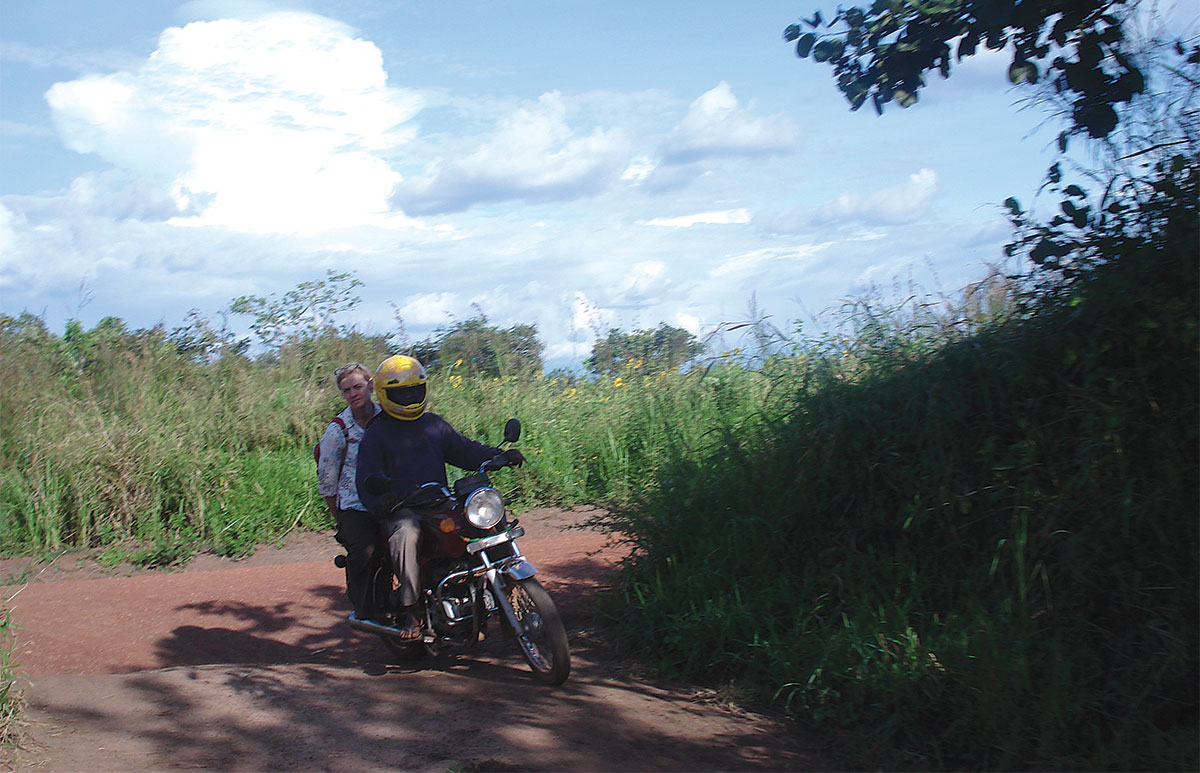
I never thought I’d be learning an African language. In my early visits to Gulu, I made an effort to learn the greetings and drew a line under that as my tired-from-travelling brain didn’t seem to be able to retain any more than that.
Riding on a Boda Boda – one of the local motorbike taxis – I spoke my few Acholi words, which encouraged the rider to launch into an enthusiastic response. All I could then manage to say in Acholi was: ‘I’m very sorry, I am not able to speak Acholi’. At this point he laughed and, in clear English, told me I was doing well and would soon learn to speak his language. I sighed and, in my resolution to live more honestly in the world, replied that I did not think that was possible. Being over fifty, was there really any hope of mastering such a difficult language? There is very little written material in Acholi and there are certainly no ‘Acholi Made Easy’ CDs!
At this point he corrected me, in that endearing way Ugandan people do, saying with firmness and kindness in his voice, ‘You must not think like that. You are not too old. You can learn our language. You must have courage, do not fear.’ Tempted though I was to dismiss his rebuke, it had struck my heart. Fear was not a word I would have used for my reluctance to learn the language, but he was right – the root was fear. I fear the effort needed and the loss of time. I fear the struggle with memory and the failures of practice. This fear was mixed with the selfish thought that this is not a language that is useful anywhere else in the world – even in Uganda, where there are over 33 tribal languages. This journey, however, has been a constant struggle with selfishness and fear that prevent us from truly connecting with others.
So, as David and I prepare for our departure, we are learning vocabulary from an Acholi/English dictionary the Ugandan team found for us. I know the word for goat, chicken, tree and grass, even if I am pronouncing them wrong! As I have experienced in the past, language is a key to understanding a culture and to make the effort to learn a language is a gesture of love. It is no good telling people who have been bitterly betrayed by war that you love them; they have to be shown it in hundreds of dusty days and thousands of mundane deeds that embody love in action.
I still struggle to believe I will ever speak Acholi well, but I am committed to working at it and I know this effort will bless those who have felt abandoned by the outside world during the isolation of war. So, as David and I work out what we can fit into our suitcases, there will be an Acholi/English dictionary and we trust that words on a page will soon become living dialogue with those we live amongst. We look forward to the day when we can say “Atye gang – I am home”.
